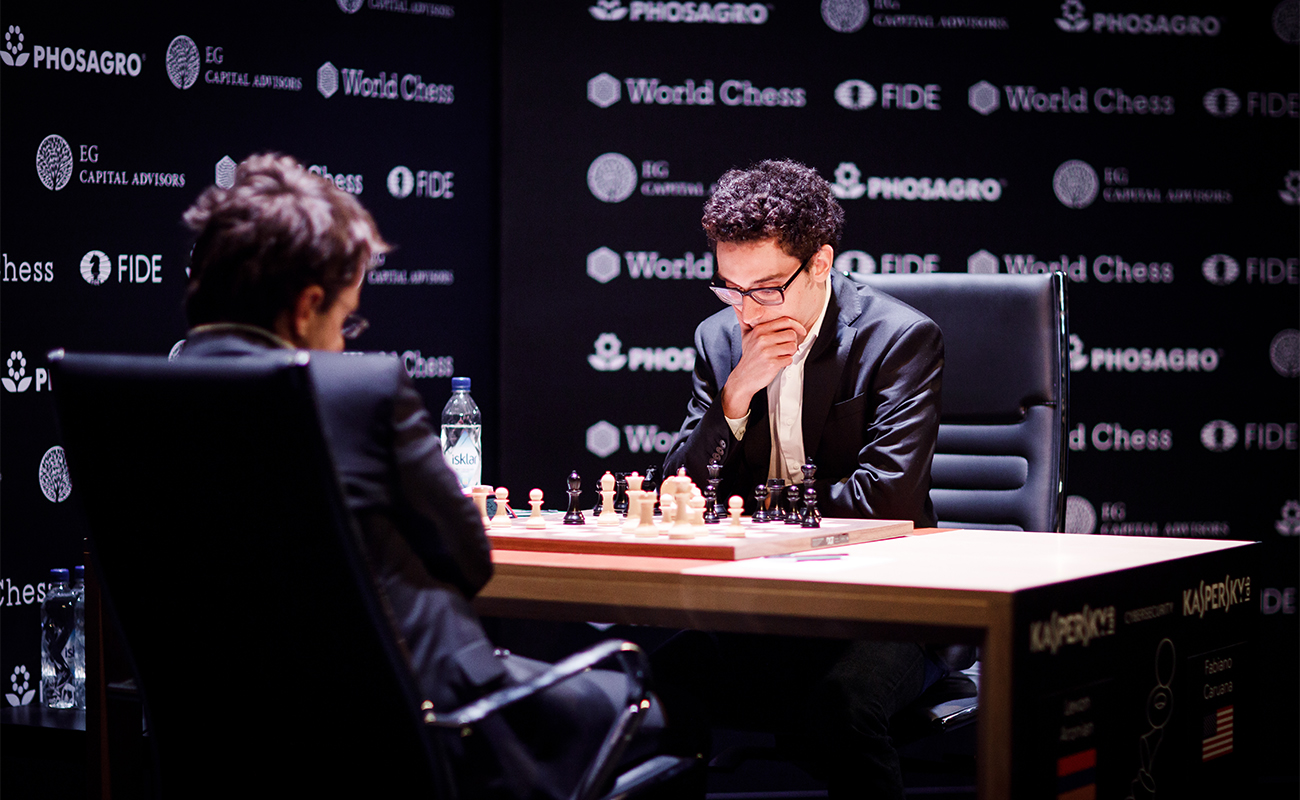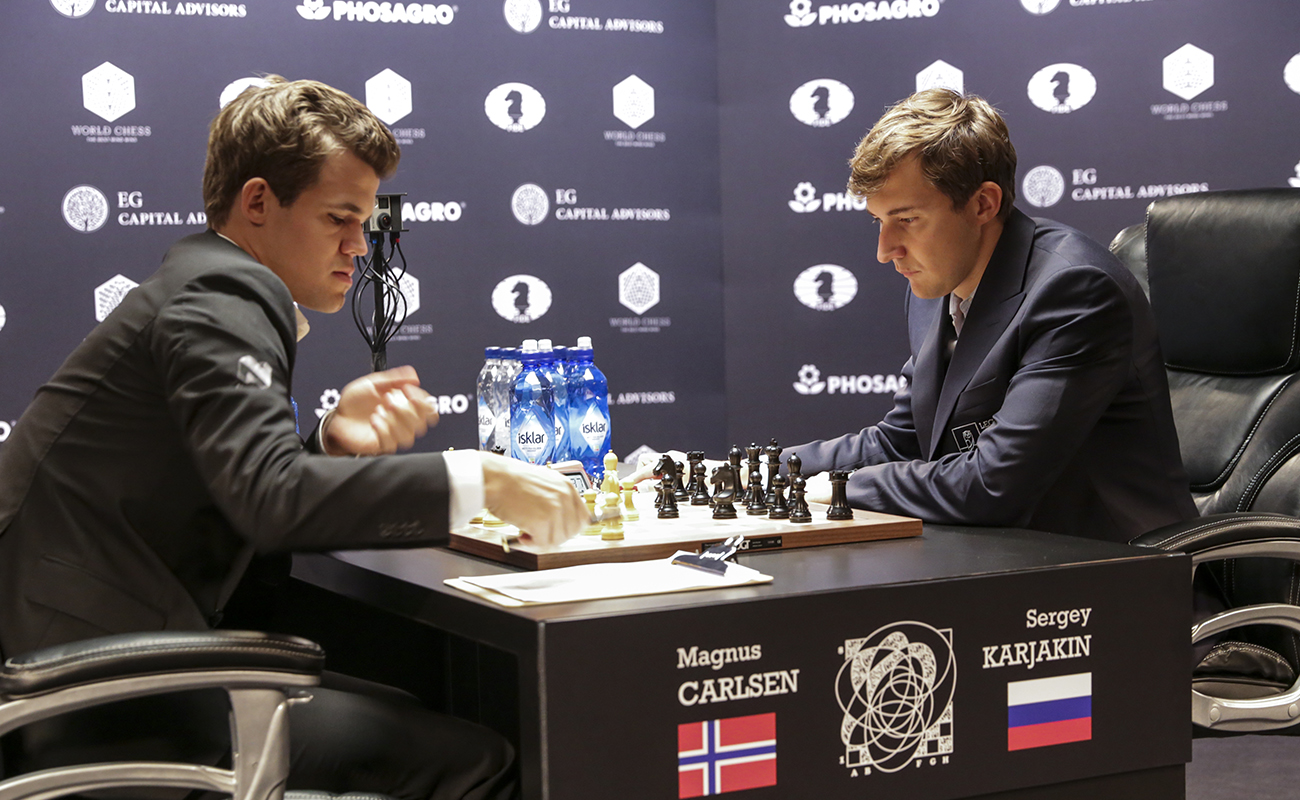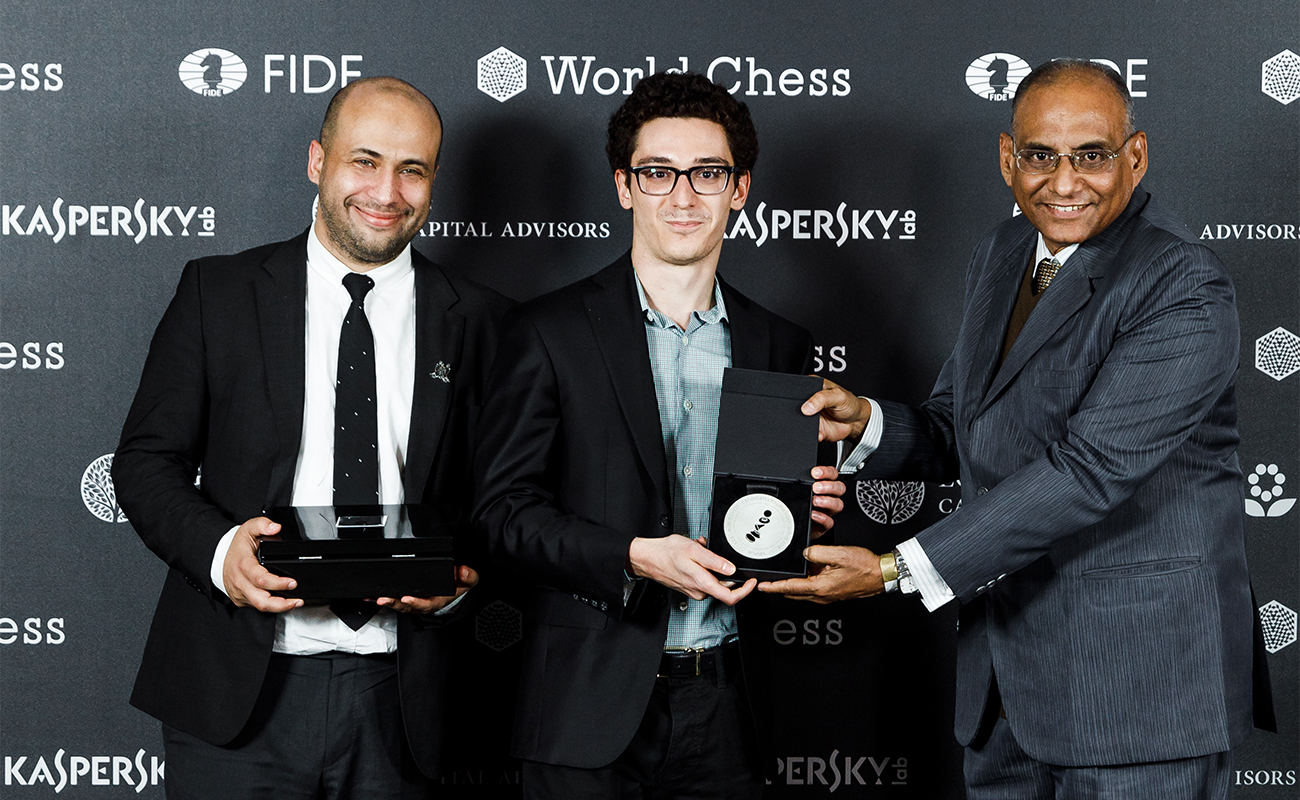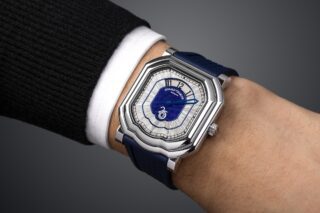This website uses cookies so that we can provide you with the best user experience possible. Cookie information is stored in your browser and performs functions such as recognising you when you return to our website and helping our team to understand which sections of the website you find most interesting and useful.
The CEO of the World Chess Championship on why London’s event will be a royal knockout
By Michelle Johnson | 15 June 2018 | Culture, Sport
Ilya Merenzon tells Tempus how the prestigious chess event has become popular with Barack Obama and Prince Harry – and how it’s shaping the future of AI

With a history dating back to 1886, the World Chess Championship is one of the longest continuous running sporting events in the world. The 2016 Championship in New York brought in a combined live and online audience of one billion fans, as well as drawing in a high net worth and high-profile audience including the likes of 44th US President Barack Obama, Mark Zuckerberg, Bill Gates and rapper Jay-Z.
But the VIP guests weren't just there to cheer on reigning champion Magnus Carlsen and challenger Sergey Karjakin, says World Chess Championship CEO Ilya Merenzon. The event is also an opportunity to network on and off the board, with chess drawing an elite crowd of investors and technology entrepreneurs every two years.
As London prepares to host the Championship in November 2018 – and VIP tickets now available to watch Carlsen defend his crown against US challenger Fabiano Caruana – Merenzon explains the growing popularity of the strategic pastime, how its famous and royal fans are setting a VIP tone, and why the interaction between technology and chess is ensuring a bright future for more than just the pieces on the board.
Tell us about the world chess championship and why you're bringing it to London?
You can look at it from a sports perspective and a London perspective. Even though the Chess Championship is the oldest championship in the world, first held in New York 1886, it had a reinvention a few years ago and has become the most popular game in the world. There are billions of downloads on smartphone apps, online players are at an all time high, and we see a genuine interest and excitement for the event – so chess is still going through a reformation in a way. We [World Chess] now own long-term rights to the championship, and the 2016 event in New York felt like coming home – or coming out. It was phenomenal to see the reach of the championship – 1.4 billion viewers around the world. To take the Championship to a city like London where, in terms of enthusiasm, chess is a far bigger sport than new York, felt like an obvious choice.
What can people expect?
I think for those who love chess, it's a once in a lifetime opportunity to be connected to the championship, to the players, to see who's going to win. For a chess fan, meeting a champion like Magnus [Carlsen] is akin to meeting Paul McCartney. We've got fans who are business leaders, celebrities and heads of state, and three kind of attendance options – a family level where you bring your children along and have a family experience that's very cool, VIP tickets that allow guests to enter what is basically a private members club for the month of November, and finally online access. >>
Related: Tennis champion Sir Andy Murray backs British tech startups

You mentioned some of the high profile business leaders and celebrity fans. How do these names help bring chess to a larger audience?
It's a tricky one, because chess as a game is so well known anyway that you can't really make its profile much bigger. Almost 50% of the world's population can connect to the championship. But what attendees like Barack Obama, Jay-Z – and hopefully [The Duke of Sussex] Prince Harry in November – help us to achieve is to make the product cooler, and to make the experience cooler for those who will come. We hope there will be some members of the Royal Family involved in the championship this year – Princess Diana attended in 1993 and I understand members of the Royal Family are chess players – and I'm sure they will soon have a World Chess Championship chess set in their living room.
Tell us about how chess and technology are coming together. How are you modernising the sport?
Well, on one hand, chess is the only sport that’s found its perfect place online and adapted to smartphone so successfully. In fact, more chess is now played on smartphones around the world than there are people living in the UK. Technology is continuing to transform the game of chess – there are amazing anti-cheating technologies that are connected to AI, and in fact one of our sponsors, Kaspersky Lab UK, is a cybersecurity expert. But games like chess are also a source of inspiration for other technologies, such as the UK-based Google Lab DeepMind, whose computer programme AlphaGO is the first AI to beat a GO world champion. Chess is very much a petri dish for AI.
You describe the championship as a private members club. Could you expand on that?
Chess is a phenomenal networking opportunity when you think about who the real fans are. At our New York event we had tech entrepreneurs and billionaire investors, Wall Street bankers and heads of state. It's really a club of millionaires who come together for their love of chess, and so that's what we try to create. London is amazing for this VIP set up, because the private club culture here is so much more developed than anywhere else in the world. People already understand how clubs like our VIP area work. On the other hand, from an investment point of view, chess is really one of the only start-ups left in the sporting world.








